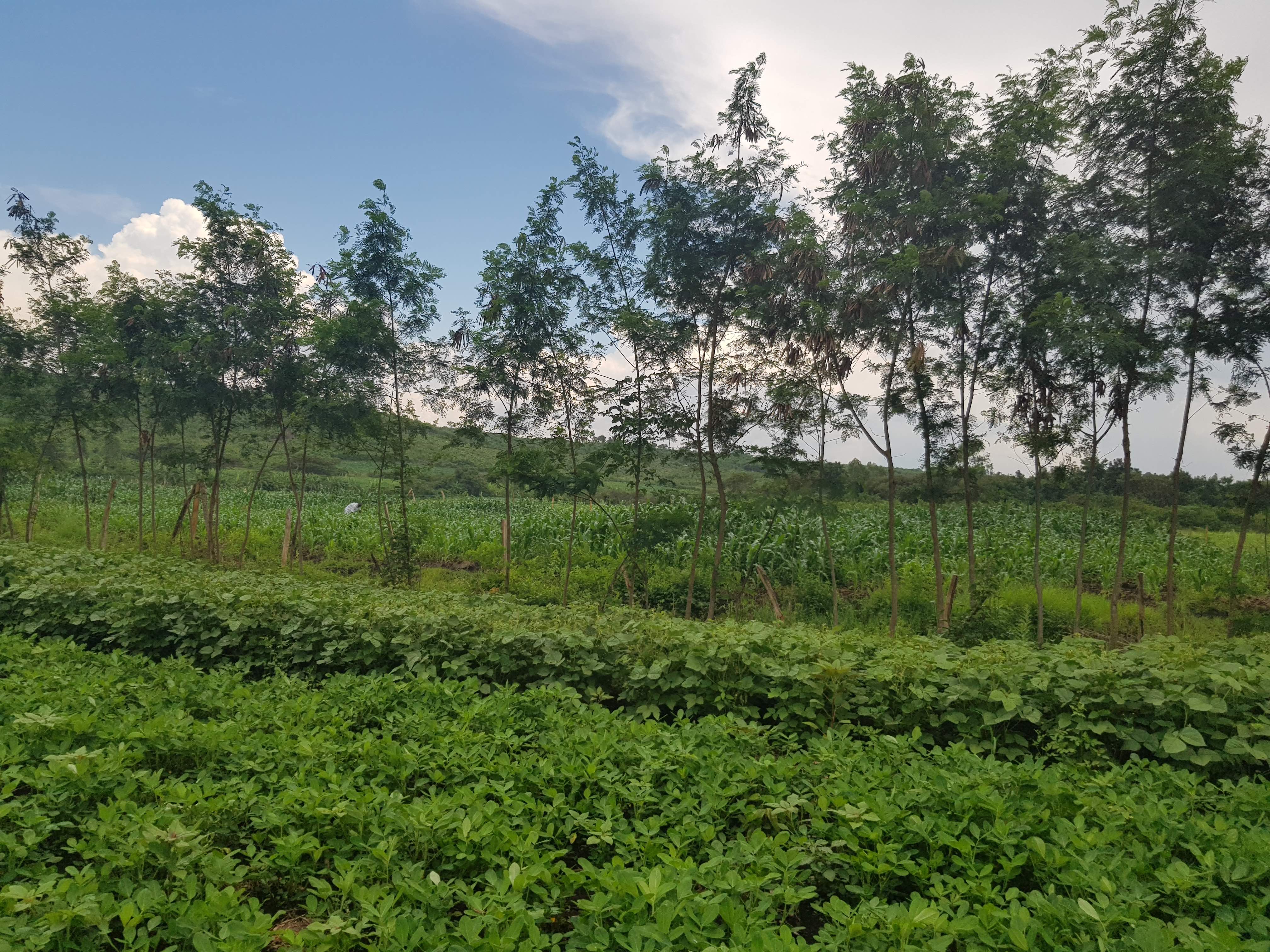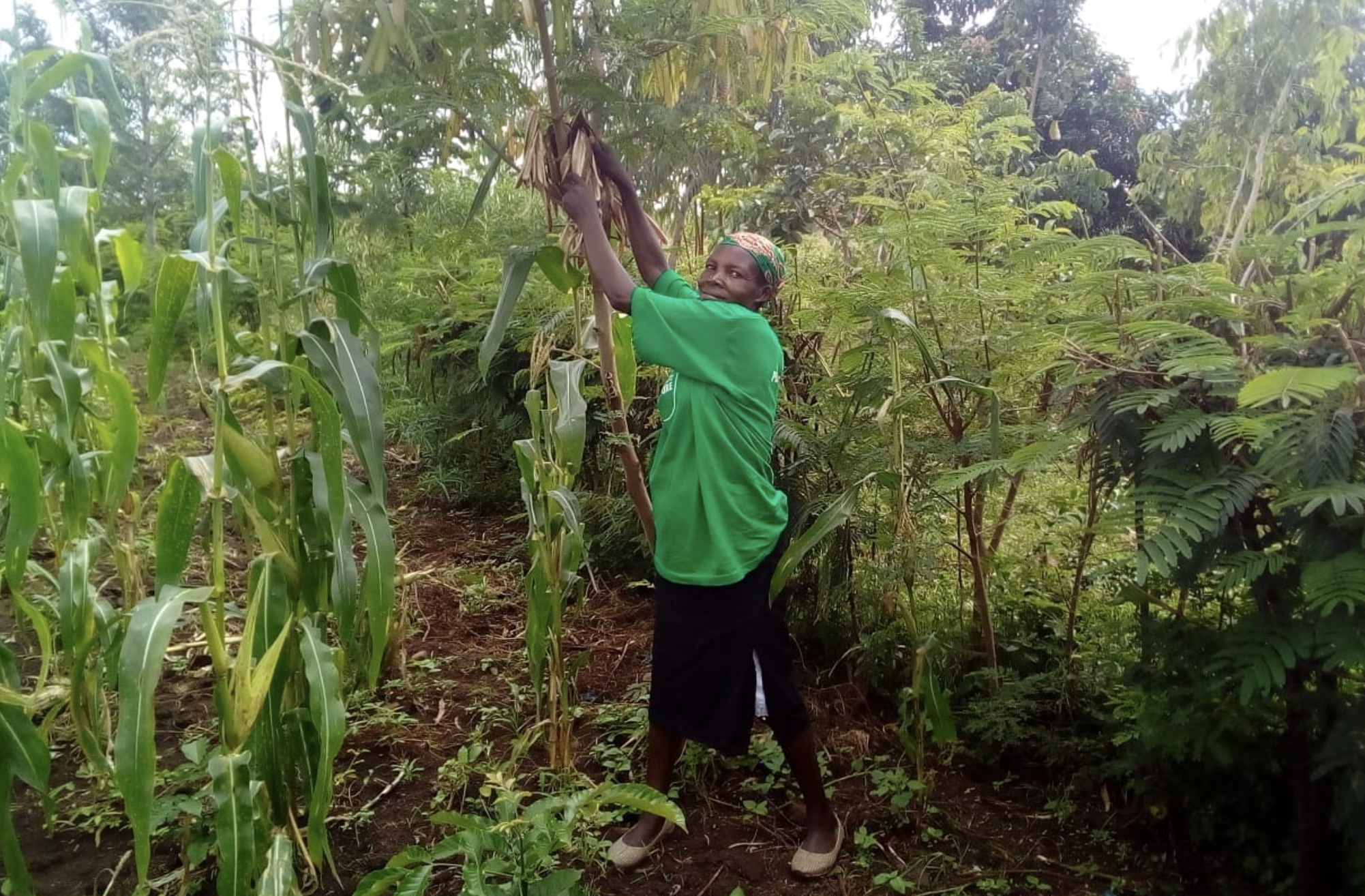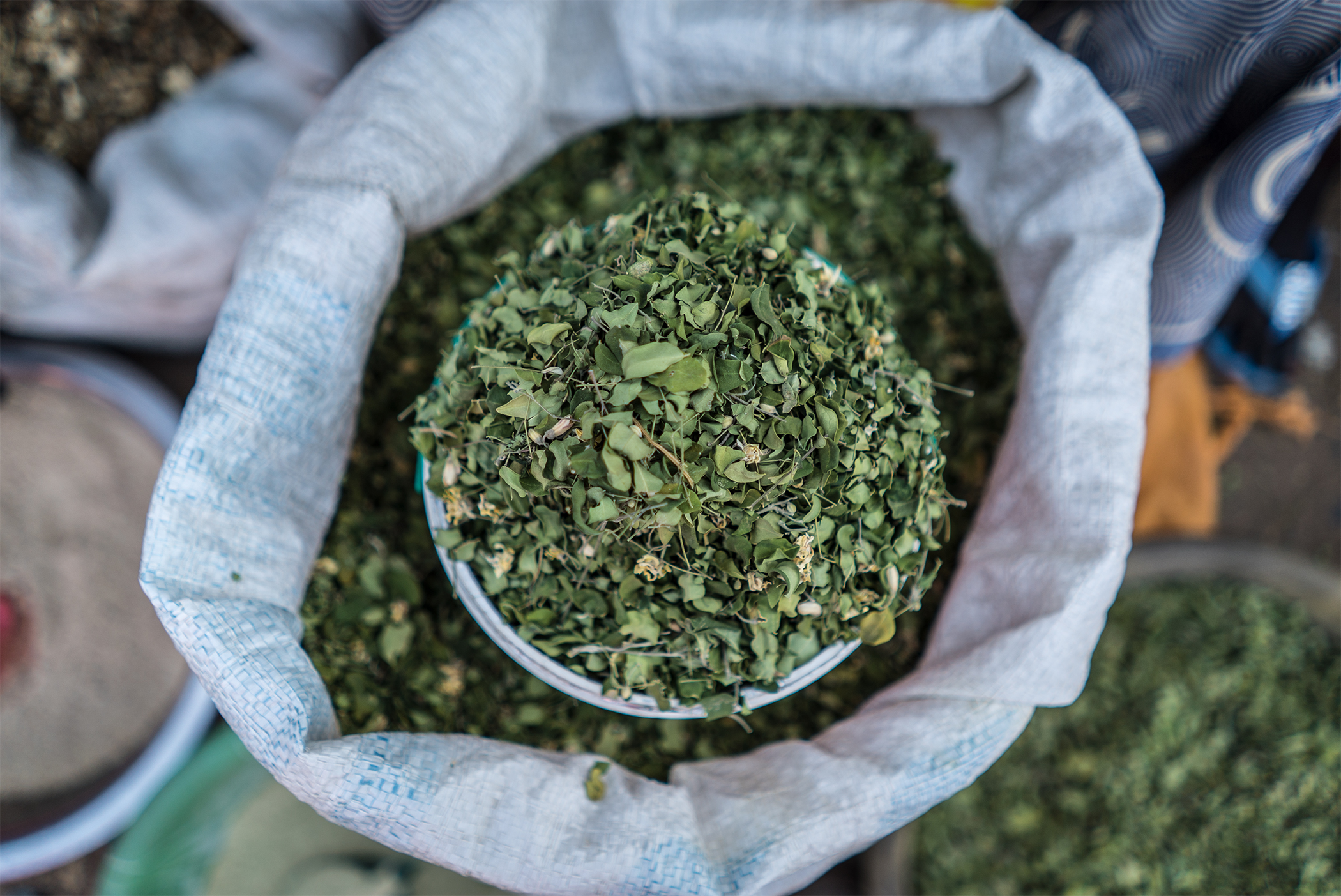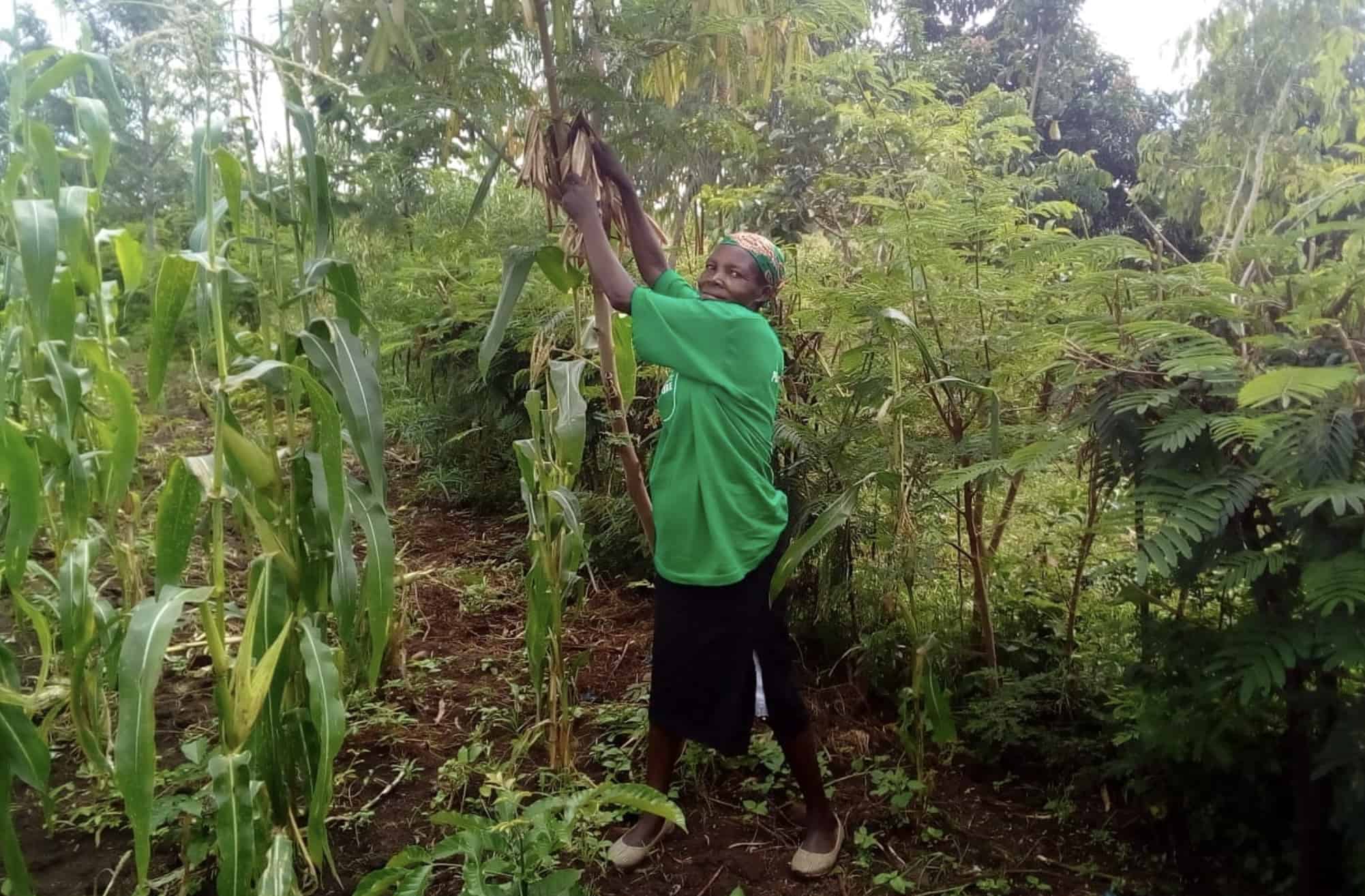And Mary isn’t alone. She is part of the Nyikal Women’s Group, made up of 21 women living with HIV and AIDS. She and her fellow farmers started saving money together in 2018 in an effort to support one another. Unfortunately, the women were consistently facing the same challenge: low crop yields. The farmers were all relying on monocropping – planting and harvesting just one crop. But today, their land looks much different.

“I grow a variety of vegetables including green pepper, kale, eggplant, onions and tomatoes in my Forest Garden,” Mary says. “The venture has proved profitable.”
Mary and the Nyikal Women’s Group are all growing Forest Gardens on their land after joining Trees for the Future in 2019. Trees for the Future (TREES) teaches farmers like Mary to embrace agroforestry and sustainable farming practices. Rather than relying on just one crop to provide for her family, Mary has diversified her land and can be confident that she’ll have something to eat or sell year round.

“We feed on balanced diets and [have] access to other essential needs from Forest Garden production sales,” Mary says.
For an immunocompromised group like Nyikal, the nutrient-rich diet found in their diverse Forest Gardens means they no longer need to rely on expensive supplements to protect their immune systems. The Moringa tree grown in their Forest Gardens is particularly beneficial, the seeds and leaves are known to boost the immune system.

“With vulnerable conditions, we would have felt the pressure of COVID-19, but TREES has enabled us to overcome the unprecedented disruption,” Mary says.
Life looks very different now for Mary and her fellow Forest Garden farmers. Not only are they all growing more food and living healthier lives, their group efforts have made life easier. Before, Mary had to trek two miles to the main market to sell her produce, but recently the group established a centrally-located market in Kotieno village. They’re now able to sell their produce to their own community, while expanding their reach to local hospitals and schools.
Mary and her colleagues now believe they are drivers of change and have potential to transform their lives and that of the neighbouring communities.
Help transform land and lives like that of Mary’s and the Nyikal Women’s Group. Donate to TREES today.
